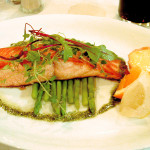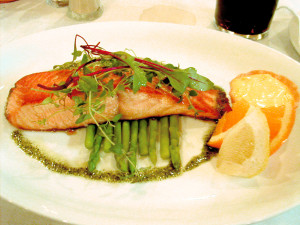 Omega 3 fatty acids from fish oil are widely considered to be a useful way to help reduce inflammation in the body. Usually we think of omega 3’s (mainly ALA, DHA, EPA) in terms of preventing inflammation-related health problems, joint conditions, depression and bipolar disorder, and more. But inflammation can get out of control in acute health situations as well. One serious acute problem is sepsis, potentially including septic shock and death.
Omega 3 fatty acids from fish oil are widely considered to be a useful way to help reduce inflammation in the body. Usually we think of omega 3’s (mainly ALA, DHA, EPA) in terms of preventing inflammation-related health problems, joint conditions, depression and bipolar disorder, and more. But inflammation can get out of control in acute health situations as well. One serious acute problem is sepsis, potentially including septic shock and death.
Ten percent of patients who end up in an intensive care unit can suffer from sepsis. Even more patients can have some lesser but still serious form of systemic inflammatory response syndrome. Now a study on patients in an intensive care unit who went into a life-threatening acute complication of infection, that is, sepsis, had better outcomes when treated with fish oils (Hall et al JPEN J Parenter Enteral Nutr 2014). Sepsis can lead to failure of multiple key organs in the body and death. It is something that needs everything Western medicine can bring to bear on the problem to keep the person alive and survive the crisis.
In this type of crisis, patients are not able to eat – they are too sick. But the doctors who performed this study gave the fatty acids by a means other than oral, i.e., parenterally. They looks at the extent of organ failure in persons who got standard conventional care versus those who got the same standard care with omega 3 fatty acids added.
They found that the severity of the sepsis and organ failure was signfiicantly less, with lower rates of death in comparison with standard care alone. This is very encouraging. They found the treatment to be safe and potentially able to save lives. Of course if someone had a history of severe allergic reactions to fish, this is not an option. While not tested, perhaps flax oil is an option for such people. It is important to note, however, that the relative proportion of fatty acids like ALA are higher in flax oil than in fish oil, so it would remain to be seen if this might help in sepsis.
Still, if you were ever to end up in this type of bad medical crisis, making sure that you started off supported over the long term by good anti inflammatory diet and natural supplements like fish oil before a problem like sepsis might ever become an issue for your health. Bacterial infections most often lead to sepsis. In a relatively younger and healthier person, sepsis may be relatively less likely, but not impossible, e.g., if you had a “burst appendix” or an infected wound in a diabetic that led to a huge immune response to the infection.
And, if you are diabetic, by all means optimize your nutritional status to reduce your risk of ever having to deal with a sepsis crisis in the hospital. Zinc status is key – if you don’t know if your zinc levels are OK, ask your doctor to get a simple blood test to check them. You probably need daily supplementation, as poorly controlled diabetes by itself can cause the body to lose zinc, making infections more likely in the first place.
Another natural remedy strategy in patients with sepsis is homeopathically prepared remedies. Researchers did a placebo-controlled randomized clinical trial of appropriate homeopathic remedies added to standard care. Over the long-term, people with sepsis had better survival rates 180 days after treatment began if they had homeopathic remedies added to standard care (Frass et al Homeopathy 94(2):75-80, 2005).
Bottom line – take care of yourself with an anti inflammatory preventive approach to health care. But, if you get into trouble, you and your family should ask about other natural supplements like omega 3 fatty acids to add to standard care. This just might give you an edge against life threatening inflammation.


